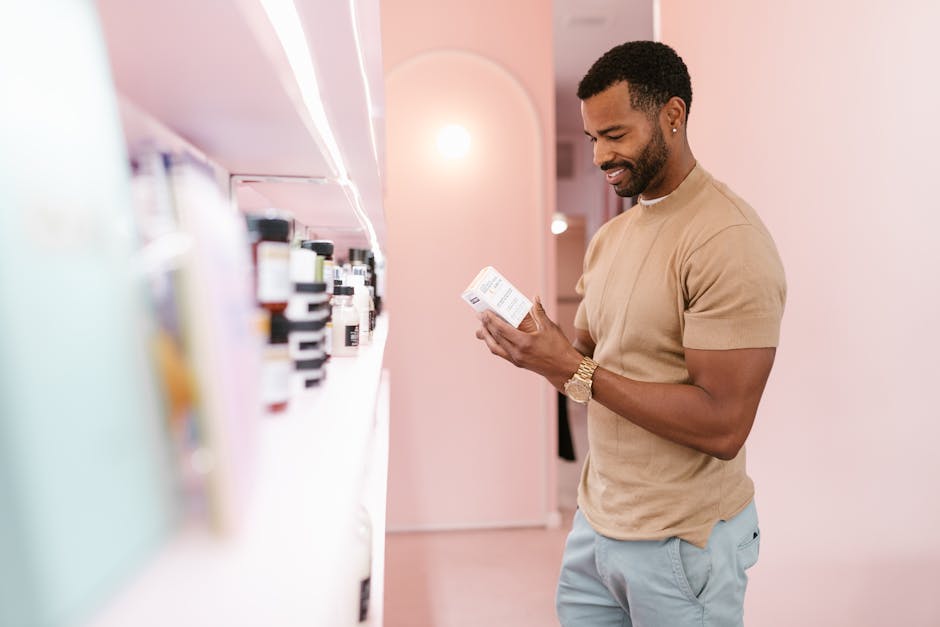The fashion and beauty industries are vast and complex, overflowing with promises of transformation and allure. Navigating this landscape can feel overwhelming, leaving consumers susceptible to marketing ploys and potentially harmful ingredients. However, empowering consumers to make informed choices is not just about avoiding pitfalls; it’s about recognizing personal needs and values as a driving force in the purchasing process.
Deconstructing the Hype: Understanding the Marketing Tactics
Modern beauty marketing often relies on persuasive language, aspirational imagery, and social proof to sway consumer decisions. Advertisers employ clever strategies to associate products with a desired lifestyle or identity, creating a sense of urgency, and often using endorsements from influencers, celebrities, or even scientific jargon to lend credibility. A discerning consumer needs to critically evaluate these presentations and look beyond the surface.
Crucial questions to ask include:
* What are the claims being made, and are they backed by verifiable evidence? Look for independent testing results and certifications, not just buzzwords.
* Who is the target audience for this product? Does it align with your needs and preferences?
* Are there any potential conflicts of interest? Do the influencers or celebrities promoting this product have a vested interest, such as financial compensation or brand alignment?
Beyond the Surface: Ingredients and Their Effects
The composition of beauty products significantly impacts their efficacy and potential risks. Understanding ingredients is paramount to informed decision-making. While some ingredients are widely accepted as safe and effective, others can have a range of adverse effects, from allergic reactions to hormonal disruptions.
Extensive research into ingredients is crucial. Consumers should familiarize themselves with common irritants, allergens, and controversial substances. Websites dedicated to ingredient databases and independent testing laboratories offer valuable resources to assist in this process. Look for products formulated with natural and organic ingredients, when possible, as they often have a lower potential for adverse effects.
Beyond the labels, consider the origin and sourcing of ingredients. Sustainable and ethical sourcing practices are increasingly important to many consumers, particularly those concerned about environmental impact. This extends beyond the product’s ingredients to its packaging and overall production process.
Recognizing Personal Needs: Tailoring Choices to Individuality
The pursuit of beauty is deeply personal. Instead of blindly following trends, consumers should prioritize products that address their unique needs and concerns. This could range from specific skin types and concerns like acne or dryness, to hair conditions like damage or thinning, or to the unique requirements of specific skin tones and ethnicities.
A crucial step involves understanding your skin type and hair structure. Recognizing these factors is vital for choosing appropriate products and formulations. Do thorough research, and don’t hesitate to consult with dermatologists or hairstylists for personalized recommendations. Understanding skin sensitivities and potential allergies is particularly important.
The Role of Ethical and Sustainable Practices
Ethical considerations are increasingly relevant to conscious consumers. This encompasses fair labor practices, animal welfare, and environmental sustainability in the manufacturing process. Companies that prioritize these values are often willing to disclose their ethical sourcing and manufacturing practices.
Transparency is a key aspect of ethical beauty. Consumers should actively seek out brands that provide clear information on their practices and strive for sustainable packaging and production methods. The environmental impact of beauty products extends beyond the packaging; the raw materials, manufacturing processes, and the overall product lifecycle should also be considered.
Prioritizing Health and Wellness: Embracing Holistic Beauty
Beyond external appearances, fostering a holistic approach to beauty is increasingly popular. This emphasizes self-care, healthy habits, and prioritizing emotional well-being, which can influence external beauty.
Focus on a balanced diet, regular exercise, and adequate sleep to support overall health, which often reflects positively on skin and hair health. Stress management techniques also play a critical role in promoting inner and outer harmony. When considering beauty choices, look for products that support these holistic approaches rather than simply addressing symptoms.
The Empowering Consumer: Taking Action
Making informed beauty choices is an ongoing process, not a destination. Consumer vigilance and research are essential to navigating the complexities of the beauty market. Engage with multiple sources of information, question advertising claims, and actively seek out transparency and ethical sourcing.
Active participation in discussions, reviews, and forums can provide insights from fellow consumers and experts. By educating themselves and seeking out reliable information, consumers gain the power to make conscious decisions that align with their values and contribute to a more ethical and sustainable beauty industry.
The power ultimately lies in the hands of the informed consumer. When consumers proactively seek knowledge and prioritize their own well-being, the beauty industry will inevitably adapt to meet the demands of a discerning and involved marketplace. This empowerment translates into a fairer and more responsible approach to beauty products and their impact on the planet and the individual.






